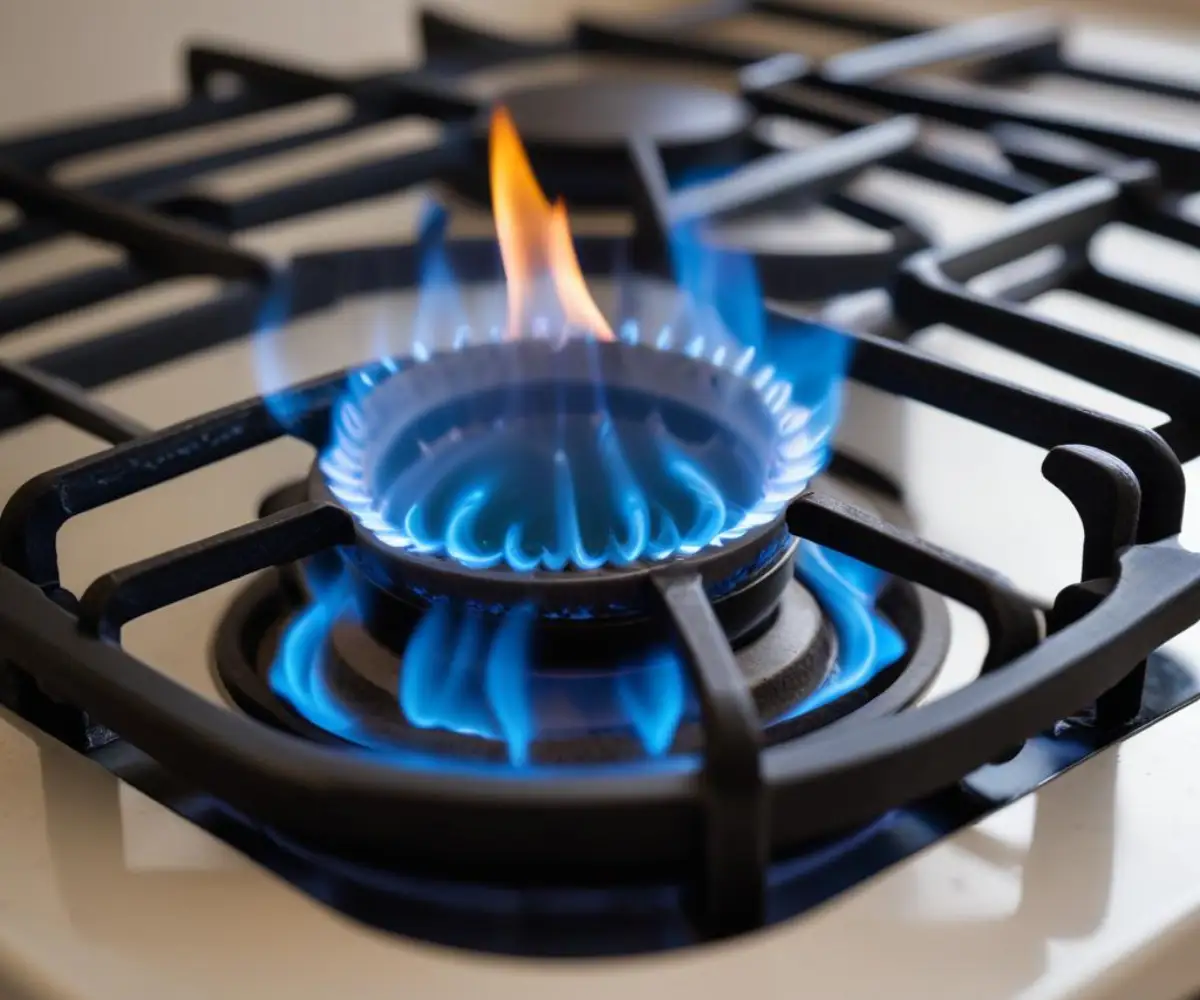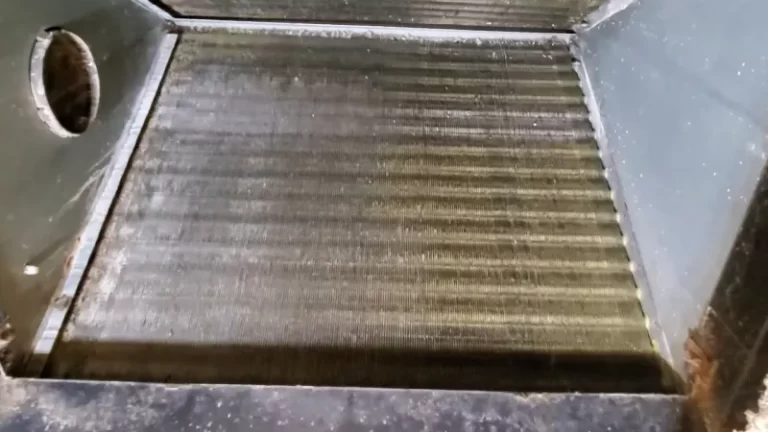Gas Smells Like a Permanent Marker? Here’s the #1 Danger Signal
You walk into your kitchen and notice a strange, sharp chemical odor. It’s not rotten eggs, the classic sign of a gas leak you’ve always heard about. Instead, it smells distinctly like a permanent marker. This confusing and alarming scent can cause immediate concern, and for good reason.
That permanent marker smell could be a serious warning sign of a natural gas leak. Understanding why this happens and what to do next is critical for your safety. This guide will explain the mystery behind the smell, the potential dangers, and the exact steps to take to protect your home and family.
You'll Learn About
Why Natural Gas Has Any Smell at All
In its natural state, the gas used to power your furnace, water heater, and stove is completely odorless and colorless. This makes it impossible to detect on its own. To counteract this danger, utility companies add a chemical odorant, a harmless but pungent substance called mercaptan.
Most people associate mercaptan with the smell of sulfur or rotten eggs. This powerful odor is added specifically so that even a very small leak is immediately noticeable. It serves as a built-in alarm system, alerting you to a problem long before gas levels become dangerous.
The Marker Smell Mystery: Why Not Rotten Eggs?
If gas is supposed to smell like rotten eggs, why are you smelling something closer to a Sharpie? The answer lies in a combination of chemistry, concentration, and how your own sense of smell works. It’s a phenomenon that few people talk about but is crucial to understand.
The Unexpected Chemical Connection
Permanent markers get their distinct smell from solvents like xylene and toluene. Natural gas gets its warning smell from an organosulfur compound like tert-Butylthiol. While chemically different, these substances are all volatile organic compounds (VOCs) that can be perceived similarly by the human olfactory system.
At very low concentrations, the sharp, pungent notes of the gas odorant might not fully register as “rotten eggs.” Instead, your brain may interpret the unfamiliar chemical scent as something it has a closer reference for, like the smell of a permanent marker or solvent.
How a Small Leak Can Change the Scent
A very small or new gas leak might not release enough mercaptan to produce the overwhelming rotten egg smell. This is especially true if the leak is far from where you are. The odor can be faint and diffuse, making it harder for your nose to identify it correctly.
In these cases, the smell is often described as a vague chemical odor, a plastic-like smell, or the distinct scent of a permanent marker. This is one of the most overlooked signs of a potential gas leak and should never be ignored just because it doesn’t match the textbook description.
Is a “Permanent Marker” Gas Smell Dangerous?
Yes, absolutely. Any unexplained chemical smell in your home that could be related to gas should be treated as an emergency until you can prove otherwise. The dangers associated with a gas leak are severe and immediate, regardless of how you perceive the odor.
The primary risks are fire and explosion. Natural gas is highly flammable, and even a small spark from a light switch or an appliance can ignite it. Inhaling natural gas can also lead to health issues like dizziness, headaches, nausea, and, in high concentrations, asphyxiation due to lack of oxygen.

Your Immediate Action Plan: What to Do RIGHT NOW
If you smell what you believe could be gas, do not hesitate. Your immediate priority is safety, which means getting everyone out of the house and calling for help from a safe distance. Follow these steps precisely.
Step 1: DO NOT Create a Spark
The single most important rule is to avoid creating any potential ignition source. Do not use anything that could generate a spark.
This includes:
- Flipping light switches on or off.
- Using your cell phone, landline, or any other electronic device.
- Operating any appliances (like the stove or microwave).
- Lighting a match, candle, or cigarette.
- Pressing the doorbell.
- Starting a car in an attached garage.
Step 2: Evacuate Immediately
Leave the house right away. Ensure that every person and all pets exit the building. Do not waste time trying to find the source of the smell yourself.
As you leave, you can open doors and windows to help ventilate the area, but only if it is safe and does not delay your evacuation. Your primary goal is to get to a safe location.
Step 3: Call for Help from a Safe Distance
Once you are a safe distance away from your home (at least 300 feet, or a neighbor’s house down the street), use your cell phone or a neighbor’s phone to call your gas utility’s emergency number and 911.
Report that you smell gas and provide your address. Be sure to mention that the smell is like a permanent marker, as this detail can sometimes help the emergency crew. Do not re-enter your home until a qualified professional has declared it safe.
Investigating Other Potential Causes (After Ruling Out Gas)
Once the gas company has confirmed there is no leak, you might wonder what else could cause such a strange odor. While a gas leak should always be your first suspicion, several other household issues can produce a similar chemical smell.
New Appliance “Off-Gassing”
It’s common for new furnaces, water heaters, or stoves to emit a chemical or oily smell the first few times they are used. This is caused by factory coatings, adhesives, and oils burning off the new components. This smell is generally harmless and should dissipate within a few hours or days of operation.
Sewer Gas from Dry P-Traps
Plumbing drains have a U-shaped pipe called a P-trap that holds water, creating a barrier to prevent sewer gas from entering your home. If a drain isn’t used for a long time (like in a guest bathroom or basement floor drain), the water in the trap can evaporate, allowing sewer gas to escape.
Sewer gas can sometimes have a chemical-like odor mistaken for gas. Pouring a pitcher of water down the drain will refill the trap and should solve the problem. Proper drain maintenance is key, and understanding your plumbing system, such as knowing when you can use flexible pvc for shower drain installations, helps maintain a safe home environment.
Household Chemicals or Overheating Electrical Components
Spilled solvents, paints, or potent cleaning supplies can create a strong marker-like smell. Additionally, overheating electrical components in appliances, outlets, or fixtures can sometimes produce a sharp, plastic or chemical odor. If you suspect an electrical issue, it’s best to call a qualified electrician.
| Odor Source | Primary Smell Description | Associated Risks | Recommended Action |
|---|---|---|---|
| Natural Gas Leak | Rotten eggs, sulfur, or a sharp chemical/permanent marker smell | High: Fire, explosion, health issues | Evacuate immediately and call your gas utility/911 from a safe distance. |
| New Appliance Off-Gassing | Oily, metallic, or chemical smell during first use | Low: Generally harmless fumes | Ventilate the area. If the smell persists after several uses, contact an appliance technician. |
| Sewer Gas / Dry P-Trap | Rotten eggs, sewage, or a general chemical odor | Low: Unpleasant odor, low health risk in short term | Pour water down unused drains. If the smell continues, call a plumber. |
| Electrical Overheating | Sharp plastic, burning, or chemical smell near an outlet or appliance | High: Fire hazard | Turn off power at the breaker and call a licensed electrician immediately. |
The Professional Inspection: What to Expect
When the gas company’s technician arrives, they will use a handheld gas detector to check for the presence of natural gas in and around your home. Their priority is to ensure the area is safe. If a leak is detected, they will typically shut off your gas supply at the meter.
The technician will then work to locate the source of the leak, which could be a loose fitting on an appliance, a corroded pipe, or a faulty valve. It is crucial that any repairs to gas lines are performed by a qualified and licensed professional. Much like you should never attempt to replace an electrical panel without a permit due to the extreme danger, DIY gas repairs are a recipe for disaster.
Prevention: Your Best Defense Against Gas Leaks
While knowing how to react to a leak is essential, proactive prevention is the best strategy for maintaining a safe home. A few simple measures can significantly reduce your risk.
Install Gas and Carbon Monoxide Detectors
Install a UL-certified natural gas leak detector near your gas appliances. These devices sound an alarm when they sense gas in the air, providing an extra layer of protection. It’s also vital to have working carbon monoxide detectors on every level of your home.
Schedule Regular Professional Maintenance
Have your gas appliances (furnace, water heater, stove) and gas lines inspected annually by a qualified HVAC technician or plumber. Regular maintenance ensures that all connections are secure and that your appliances are operating safely and efficiently.
Maintain Your Home’s Integrity
Ensure your home is properly sealed to prevent pests from entering walls and potentially damaging hidden gas lines. Even seemingly minor home modifications need to be done correctly; for instance, understanding the cost to remove a dog door in a wall includes properly sealing the opening to maintain your home’s barrier against the elements and pests.
Conclusion: Trust Your Senses and Act Fast
The smell of permanent marker in your home is an unusual but critical warning sign that should never be dismissed. While the classic “rotten egg” smell is the most well-known indicator of a natural gas leak, your nose might perceive a small or distant leak as a more generic chemical odor.
When in doubt, get out. The potential consequences of a gas leak are too severe to ignore. By following the immediate action plan—evacuate, don’t create a spark, and call for help from a safe distance—you are taking the most important step to protect yourself and your family. Prioritizing safety and relying on professional expertise is always the right call.


